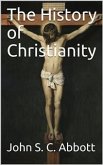History of the Church (cited as HC) (originally entitled History of Joseph Smith; first published under the title History of the Church of Jesus Christ of Latter-day Saints; nicknamed Documentary History of the Church or DHC) is a semi-official history of the early Latter Day Saint movement during the lifetime of founder Joseph Smith. It is largely composed of Smith's writings and interpolations and editorial comments by Smith's secretaries, scribes, and after Smith's death, historians of The Church of Jesus Christ of Latter-day Saints (LDS Church). The history was written between 1839 and 1856 (Jessee 1976). Part of it was published in Times and Seasons and other church periodicals. It was later published in its entirety with extensive annotations and edits by B. H. Roberts as part of a seven-volume series beginning in 1902 as History of the Church of Jesus Christ of Latter-day Saints.
This volume deals with the History of the Church from May 3, 1842, to 31st of August, 1843. It, therefore, covers a period of about sixteen months. The main external events may be set down as follows: First, exposure of the wickedness of John C. Bennett, and his departure from Nauvoo; (2) the charge against the Prophet Joseph of complicity in an attempted assassination of Ex-governor Lilburn W. Boggs, under whose celebrated exterminating order the body of the Church was driven from Missouri: (3) the attempt of the state of Missouri to extradite the Prophet from the state of Illinois, to be tried as an accessory before the fact to an assault on ex-Governor Boggs; (4) a second attempt on the part of Missouri to extradite the Prophet from the state of Illinois on the old charge of "murder, treason, burglary, arson, larceny, theft and stealing," first brought against him in the year 1838; (5) a preliminary prospecting of the West, doubtless with a view to the contemplated removal of the Saints to the Rocky Mountains.
Of events that relate more nearly to the Church as an organization there should be mentioned: (1) the introduction of the endowment ceremonies and enlarged instruction on the subject of baptism for the dead; (2) an extension of auxiliary organization by bringing into existence the Young Men's and Women's Society.
Another item of great interest in this volume is the manifest development of the character and spiritual strength of the Prophet during this period. The trying experiences through which he passed seemed to discover new qualities of soul power within him, and to emphasize those which he was known to have possessed.
The doctrinal development of the period covered by this volume deals with several items which may be regarded as preliminary to that richer unfolding of philosophical thought to which the last year of the Prophet's teaching was so largely devoted. Let us now consider these several items more in detail.
This volume deals with the History of the Church from May 3, 1842, to 31st of August, 1843. It, therefore, covers a period of about sixteen months. The main external events may be set down as follows: First, exposure of the wickedness of John C. Bennett, and his departure from Nauvoo; (2) the charge against the Prophet Joseph of complicity in an attempted assassination of Ex-governor Lilburn W. Boggs, under whose celebrated exterminating order the body of the Church was driven from Missouri: (3) the attempt of the state of Missouri to extradite the Prophet from the state of Illinois, to be tried as an accessory before the fact to an assault on ex-Governor Boggs; (4) a second attempt on the part of Missouri to extradite the Prophet from the state of Illinois on the old charge of "murder, treason, burglary, arson, larceny, theft and stealing," first brought against him in the year 1838; (5) a preliminary prospecting of the West, doubtless with a view to the contemplated removal of the Saints to the Rocky Mountains.
Of events that relate more nearly to the Church as an organization there should be mentioned: (1) the introduction of the endowment ceremonies and enlarged instruction on the subject of baptism for the dead; (2) an extension of auxiliary organization by bringing into existence the Young Men's and Women's Society.
Another item of great interest in this volume is the manifest development of the character and spiritual strength of the Prophet during this period. The trying experiences through which he passed seemed to discover new qualities of soul power within him, and to emphasize those which he was known to have possessed.
The doctrinal development of the period covered by this volume deals with several items which may be regarded as preliminary to that richer unfolding of philosophical thought to which the last year of the Prophet's teaching was so largely devoted. Let us now consider these several items more in detail.









